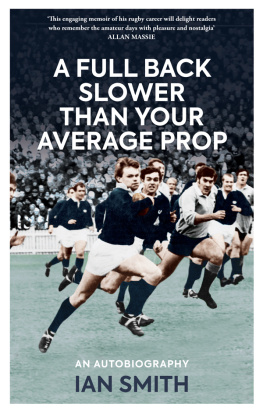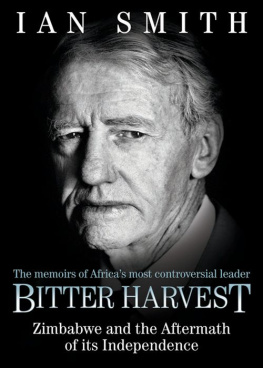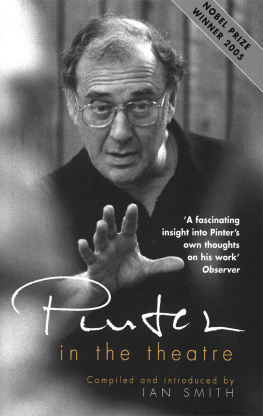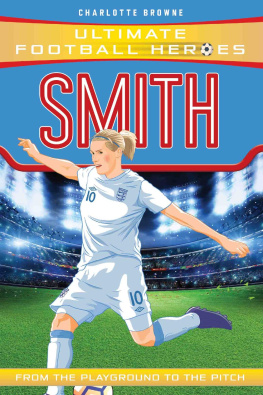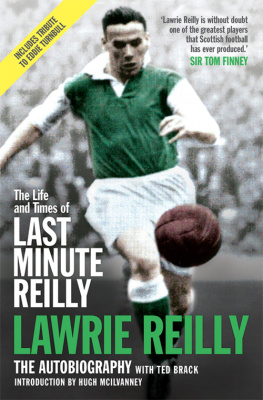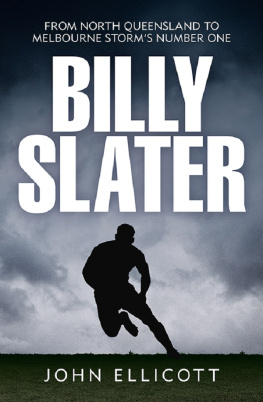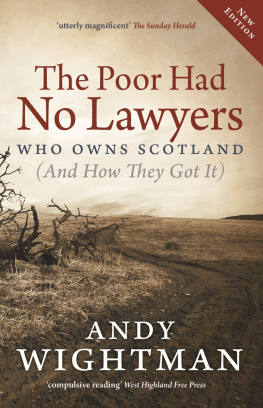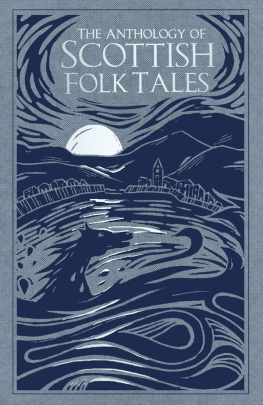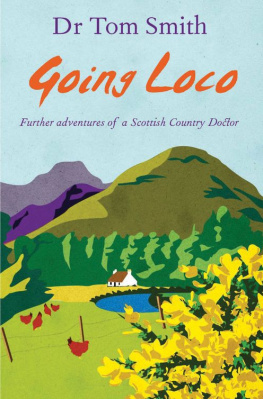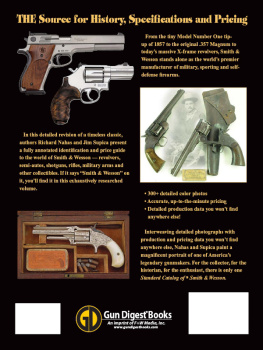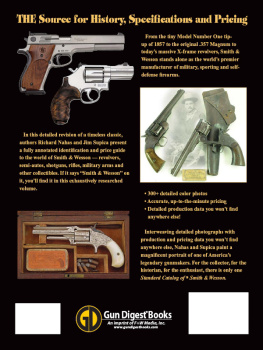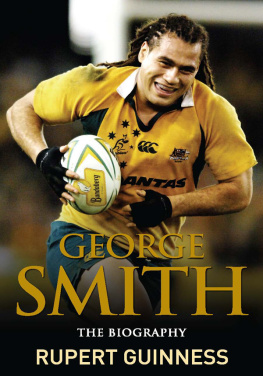Contents
Guide

This edition first published in Great Britain in 2019 by
ARENA SPORT
An imprint of Birlinn Limited
West Newington House
10 Newington Road
Edinburgh
EH9 1QS
www.arenasportbooks.co.uk
Copyright Ian Smith 2019
ISBN: 9781909715813
eBook ISBN: 9781788851824
The right of Ian Smith to be identified as the author of this work has been asserted by him in accordance with the Copyright, Designs and Patents Act 1988.
All rights reserved. No part of this publication may be reproduced, stored or transmitted in any form, or by any means electronic, mechanical, photocopying, recording or otherwise, without the express written permission of the publisher.
Every effort has been made to trace copyright holders and obtain their permission for the use of copyright material. The publisher apologises for any errors or omissions and would be grateful if notified of any corrections that should be incorporated in future reprints or editions of this book.
British Library Cataloguing-in-Publication Data
A catalogue record for this book is available on request from the British Library.
Designed and typeset by Polaris Publishing, Edinburgh
www.polarispublishing.com
Printed and bound by CPI Group (UK) Ltd, Croydon, CR0 4YY
Most of us dont leave much of a mark and we disappear almost completely when the last person who remembers us also dies
This book is written for my grandchildren and their children
CONTENTS
___________
PROLOGUE
The Magic
It is 9.45 on a Saturday morning in the winter of 1953/54. The temperature is only just above freezing. A little nine-year-old boy is standing, shivering, with the sleeves of his heavy wet blue-and-white striped woollen jersey hanging down over his hands no vest, no gloves, no second jersey underneath. His shorts are soaked, his socks sodden below knees that are blue and twitching with the cold, and his leather ankle-high boots, with nailed-down studs, are thick with glutinous mud.
The boy is one of fifteen nine-year-olds playing a school match for George Heriots 36th XV, otherwise known as the 6th Juniors. He is standing in the middle of the most enormous rugby pitch, with a huge grandstand and a massive press box where he and his teammates changed before the match and where they will return, almost hypothermic, an hour hence.
The few parents watching the match do so in silence, as cheering is not encouraged in fact it is actively banned by Mr Archie McIntyre, the bald-headed tyrant who, along with Mr Donald Hastie, ruled not only the boys behaviour but that of their parents as well.
Heriots parents do not shout or cheer, one of the masters could be heard to say to a rogue parent who had committed the grievous sin of encouraging their child.
The heavy vertical rain, which shows no sign of stopping, is cascading off the boys nose and running down the back of his neck. A fog has begun to roll in, largely obscuring the distant try line and making the heavy leather ball even harder to catch or kick. All in all, it is a miserable picture. Yet the little boy is having the time of his life. It is his first game of rugby and all he has ever wanted to do.
I should know I was that little boy and it is a morning I have never forgotten, even though it happened nearly sixty-five years ago.
INTRODUCTION
Im sorry to tell you that David Boyd has died.
I must admit that it has been a very emotional experience writing this book, because it has made me examine how I feel about rugby after almost sixty years of either watching, playing, coaching or writing about what I believe to be the greatest of all the team sports.
It is only after you retire from rugby that you begin to appreciate what you took for granted for so long as a player. It might be at the start of the new season, or perhaps after injury prematurely ends your playing days, that you venture back into the changing room only to realise that there is now a barrier between you and the men you may have spent years in the same team as men you love in an unspoken way, teammates that you would accept injury and pain for without giving it a second thought, men you would spend so much time with that you became like brothers.
People who have never played the game are unlikely to understand the invisible bond that holds a rugby team together.
The instant you retire, however, something goes. You will never again be part of the dressing room humour, the in-joke, the leg-pulling, the snide remark... the look. You are out of the loop and youll never be in it again. You dont feel the pain at first, but all too quickly you become like an addict deprived of his fix, an alcoholic who wants desperately to drink but cant risk even one sip.
This feeling affects former players in different ways. Some cant face watching a match for years or even going to their club for a drink. Others cant bear the smell of liniment or hear the sound of boots on concrete as players emerge from the dressing room without a desperate longing overtaking them. Some take up coaching, but have to leave the dressing room as the players gather together in a huddle and bond before going out to do battle.
These conflicting emotions never leave you, this sense of total frustration. Even when you are old and are crippled with arthritis, you still dream at night of being summoned from the crowd to play, and managing to be the hero of the hour as you seize victory from the jaws of defeat.
Rugby is an incurable addiction. Thats why teammates and foes of old have so much in common when given the chance to meet. They relive past glories, catastrophes, incidents on and off the field, memories of matches won and lost that bind them together. In these moments, the barriers come down, the past seems like yesterday, and for a few hours they are transported back to the days when they played, and they are once again in a real rugby environment. Camaraderie may not be the best word to describe what you had, but that is what it was and still is.
For me, it isnt just the smell of liniment or the crack of studs on concrete that takes me back to my rugby-playing days, but also the smell of burning leaves. Burning leaves was the smell of autumn, which meant the rugby season, which I grew to love with a passion that was to totally consume me. Every autumn when I smell burning leaves I feel a heartache, a longing. I can close my eyes and Im once again running on to a rugby pitch. I hate autumn now.
I hope you will enjoy reading about the highs and the lows of my rugby career, and if you are as I am, an ex-player looking back with your own fond memories, bells may ring, perhaps echoes of your own rugby career may resound. You may even read about yourself, or games you were involved in, because if you are aged between sixty and eighty and played rugby in Scotland, England, Ireland, Wales, France, Germany, Australia, Hong Kong, or Japan, there is every chance you will know people who can be found in this book or perhaps even find yourself.
If you are a younger reader I want to tell the story of what rugby was like before leagues, substitutes, money, collisions, promising careers cut short by serious injury, coaches, television match officials, artificial pitches, roofs being closed, twenty-three players in a matchday XV... It was a time when players could rise from their club 3rd XV to represent their country in a Test match in ten short days. Impossible, you might think but it happened to me.

